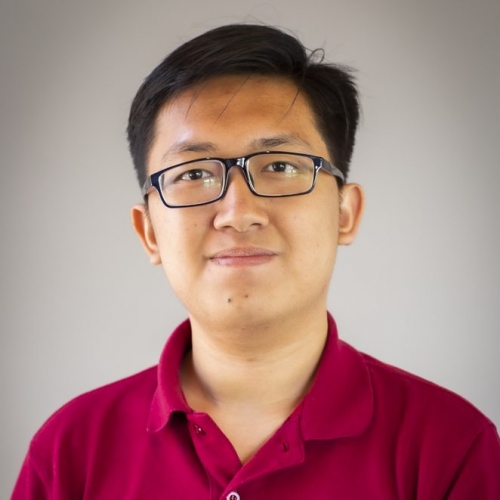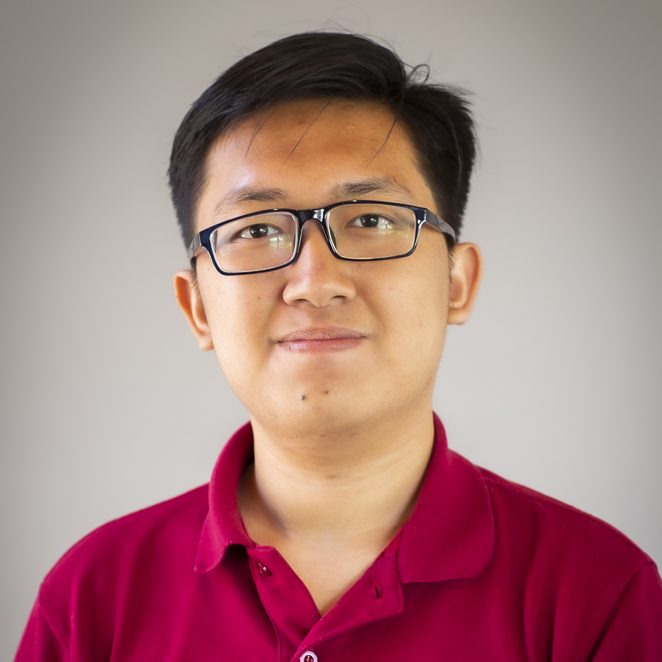
Albert Christian Soewongsono
University of Tasmania
Coming from the island of Timor, in the city of Kupang in Indonesia, I completed my bachelor’s degree in mathematics from the University of Nusa Cendana. For those who do not know about my hometown, it is very close to Australia. There is even spot there where you can see Darwin from far distant. So, if you plan to visit my hometown, let me know!
Later I received a scholarship from the Indonesian Government for my master’s studies which I completed at the Australian National University in 2018. As part of my studies, I wrote a thesis in which I used stochastic modelling to examine the most recent common ancestor of population sample evolving under a branching process. This work was supervised by A/Prof. Conrad Burden.
Then, in August 2019, I started my PhD in mathematics at the University of Tasmania under the supervision of Prof. Barbara Holland and A/Prof. Małgorzata O’Reilly. My primary research focus is on the applications of stochastic modelling in phylogenetics.
Can you give me a quick overview of the type of mathematics you are studying and its potential applications or outcomes
My research focusses on constructing mathematical models to study evolutionary processes, particularly on species level by looking at their phylogenetic trees. Understanding macroevolutionary processes such as speciation and extinction can indicate the underlying factors behind the present species diversity we see. Such factors include how each species are related and how their diversification changes through time. In the absence of fossil records, mathematical models can be used to understand such processes.
How did you get into the mathematical sciences/bioinformatics?
My high school teacher inspired me to study mathematics in my undergraduate degree. As an undergraduate student, I learnt many things about mathematics and its application across different fields, thus encouraging myself to study more about mathematics by enrolling for masters degree in Australia. During this period, I became interested with bioinformatics after taking two subjects in this field and in the end, I completed my masters thesis in population genetics. With a recommendation from my masters supervisor, I was admitted for a PhD at the University of Tasmania to do research in the applications of mathematics in phylogenetics
What advice would you give to your younger self or others wanting to studying the mathematical sciences?
I would say to my younger self to be more confident when talking about mathematics and its range of applications to people from different academic backgrounds. Often people see mathematics as something really abstract with no or less applications to real life, but we know that mathematics, in fact, has various applications in many fields. As for the advice, I would say not to limit yourself only to a certain area of mathematics, especially as an undergraduate student, but to get exposed to many different areas where mathematics is being used.
What was your motivation for attending AMSI BioInfoSummer?
I knew about this symposium for the first time from a poster in the math building at the Australian National University. My main motivation to join this event is learn more about different research topics in Bioinformatics.
What was your main take away from AMSI BioInfoSummer?
I really enjoyed the workshops held throughout the week. Although they were conducted virtually, I think the organising committees really did a great job in making sure we can experience the workshops fully and leaned new things.
If a peer asked you if they should attend AMSI BioInfoSummer, how would you describe the conference to them?
AMSI BioInfoSummer is everything packed inside one event. From guided workshops, engaging lectures, to challenging yourself by participating in the fast-paced presentations, AMSI BioInfoSummer will give you another memory you will never forget.
BioInfoSummer was held as a virtual event for the first time in 2020. What was the biggest positive from your point of view of holding it in this format and/or the biggest challenge?
Having this event online enabled us to explore alternative ways to conduct a conference in case a physical meeting is not possible. It also helps to be more engaged in each session because you do not need to rest after traveling to the conference destination.
Where do you want the mathematical sciences to take you? Where do you see yourself in five or ten years’ time?
I project my future self to have a career in academia with a position as a lecturer and researcher in the area of my study. But before that, I will need to equip myself with enough knowledge, which includes completing my current studies and also a post-doctoral position.
2020 has been a very unusual and challenging year. What is one thing you have learnt about yourself this year? Or a new skill you have developed?
One thing that I learnt from this year is a new skill to incorporate technology to my research activities such as attending conferences and presenting my research online.

